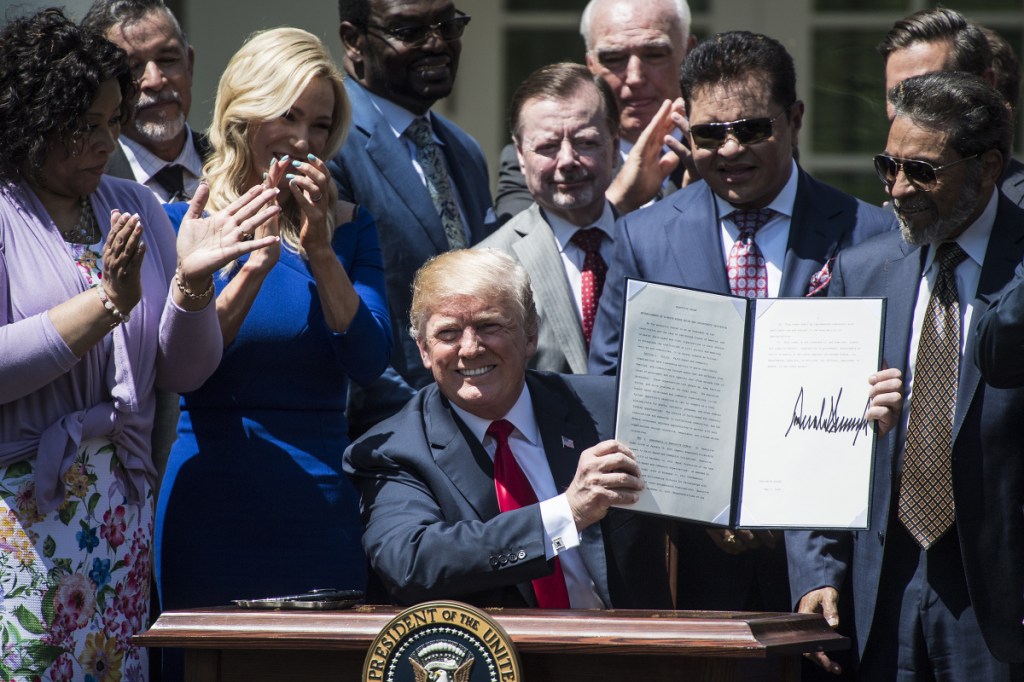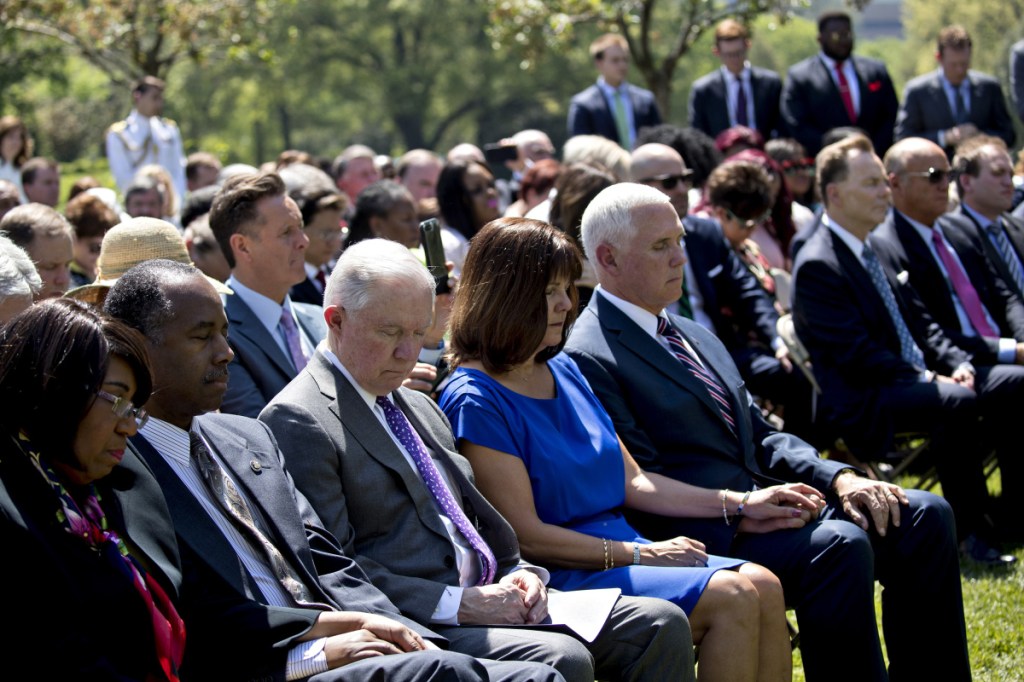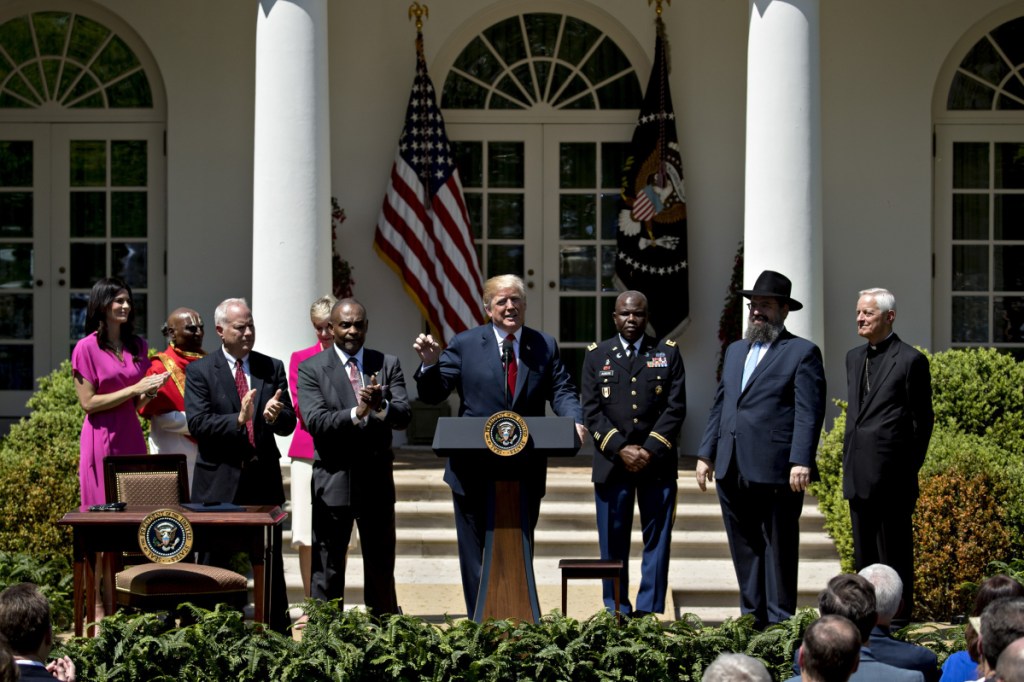WASHINGTON — President Trump in a Rose Garden ceremony Thursday announced an executive order he said would expand government grants to and partnerships with faith-based groups.
A top faith adviser to Trump said the aim was a culture change producing fewer conversations about church-state barriers “without all of these arbitrary concerns as to what is appropriate.”
Trump has shrunk the infrastructure built by presidents Bush and Obama, the latter who created offices across most agencies with staff including dozens of people at the State Department.
Under Trump, many of those staffs have shrunk and director positions have been left unfilled. However, he has expanded greatly the access to the White House of conservative Christians, evangelicals in particular, but also Catholics who feel alarmed by the growing legal tension between gay rights and conservative religious rights.
CHANGES UNCLEAR
It wasn’t clear if there were concrete changes that would come with the executive order, though Johnnie Moore, spokesman for the president’s evangelical advisory group – his only faith advisory group with regular access – said the initiative included an order to every department “to work on faith-based partnerships.” That, Moore said, “represents a widespread expansion of a program that has historically done very effective work and now can do even greater work.”
Moore mentioned an emphasis on faith-based partnerships focusing on prison reform, education, mental health and “strengthening families.” Faith-based groups have always been in such partnerships, but federal law requires that the government not show preference for one faith or put recipients in the position where they are essentially proselytized to in order to receive care.
The ceremony was held on the National Day of Prayer and featured prayers from various faith leaders, including Cissie Graham Lynch, the granddaughter of the late evangelist Billy Graham; Cardinal Donald Wuerl, Catholic archbishop of Washington, D.C., and Levi Shemtov, the longtime Washington leader for the Chabad Lubavitch movement.
‘MERRY CHRISTMAS’
The office – which has its roots with the Clinton White House in the 1990s – has always faced legal challenges, as various groups jockey for resources and others focus on guarding Constitutional protections against government-backed religion. Trump is the first to present such a homogenous group of advisors and goals described in such a sectarian manner.
At the ceremony Trump said he’s responsible for people saying “Merry Christmas” more, and talking more openly about prayer. “Don’t you notice a big difference between two or three years ago and now? Now it’s straight up.”
Melissa Rogers, who served as executive director of the White House Office of Faith-based and Neighborhood Partnerships under Obama, said in a statement that protecting religious freedom should be a key aim of the government.
“At the event today, President Trump should retract and apologize for his call for ‘a total and complete shutdown of Muslims entering the United States,'” Rogers wrote in an email.
Send questions/comments to the editors.





Success. Please wait for the page to reload. If the page does not reload within 5 seconds, please refresh the page.
Enter your email and password to access comments.
Hi, to comment on stories you must . This profile is in addition to your subscription and website login.
Already have a commenting profile? .
Invalid username/password.
Please check your email to confirm and complete your registration.
Only subscribers are eligible to post comments. Please subscribe or login first for digital access. Here’s why.
Use the form below to reset your password. When you've submitted your account email, we will send an email with a reset code.